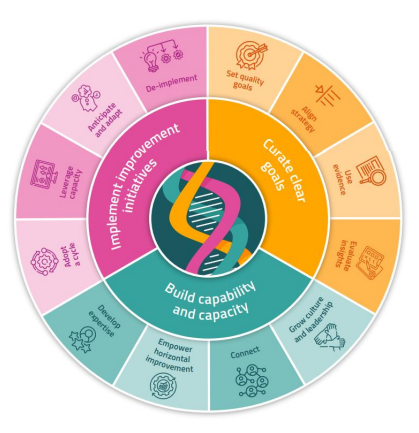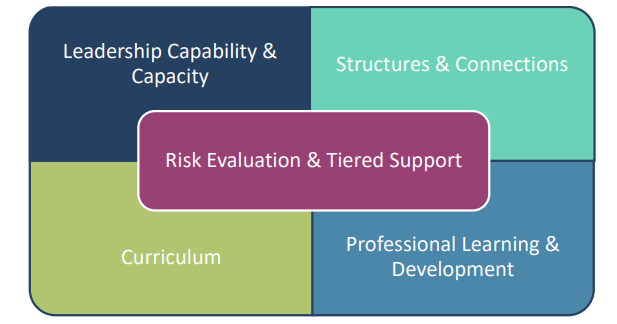TiLA School Improvement Model
Vision
We strive for all pupils across the trust to experience excellent educational provision delivered through the following strategic goals:
• an ambitious and inclusive curriculum which benefits from cross-Trust collaboration, is underpinned by TiLA’s curriculum principles, and maximises impact on pupil progress
• high-quality, inspired teaching and learning, based on evidence-informed, inclusive pedagogical principles
• a deliberately designed, effective education system and processes that ensure pupils and schools are equipped for their futures
• a highly skilled workforce that is ambitious, agile, self-sustaining and adds capacity to the education system
We believe that all young people, irrespective of background or ability will be successful in our Trust. We hold the highest expectations of our pupils and our staff. Our culture is underpinned by the belief that partnership and collaborative working are the foundation blocks for successful education outcomes, where all schools have individual and collective strength and the opportunity to support and learn from each other. We expect all employees to act with integrity and recognise that we are only as strong as our most challenged school. We embrace the value that “we are the Trust”. Our approach is one of sustainability - ‘doing with’ rather than ‘done to’. This allows development of leaders at all levels and ensuring our staff in schools are highly skilled in obtaining the best outcomes for children, thereby building capacity and creating self-improving schools.
Evidence-informed 
In designing our approach to
school improvement, we have
utilised the conceptual model of
trust-led school improvement
(Rollett, 2024) which outlines
key considerations based on
literature from improvement
models across different sectors
We have also explored the four-stage model of school improvement (Carter, 2021) which we build into our tiered approach:
• Phase one: Stabilise
• Phase two: Repair
• Phase three: Improve
• Phase four: Sustain
Trust in Learning Model for School Improvement
School improvement is delivered through five themes:

Essentially, the outer 4 of these are enablers, supporting schools through our universal provision – the core trust dividend.
The fifth, central theme evaluates the risk of not providing excellent education, and then identifies a tiered need for support. Swift, timely and decisive action may be needed where school performance/provision needs to be improved. We recognise all our schools are individual, at different stages of their improvement journey, and have varied needs and priorities. Therefore, the support provided is not a generic improvement blueprint, but bespoke and contextualised.
Please click on the link to the left of this page for the full improvement model document.
Our People

Julia Hinchliffe
Director of Education

David Spence
Director of School Improvement

John Sullivan
Leadership Coaching, Instructional Coaching, Teaching and Learning

Rachel Peregrine
Director of SEND, Safeguarding and Inclusion

Kate Richards-Short
Director of Professional Learning and Development

